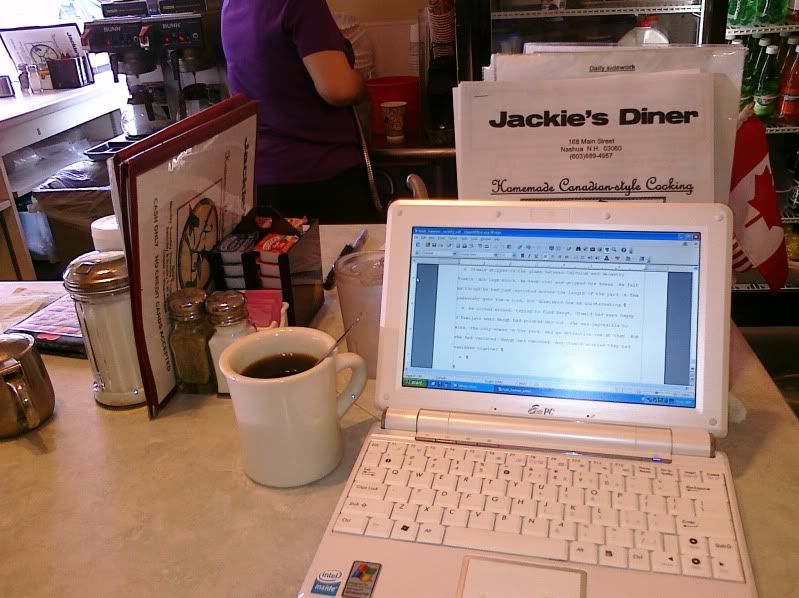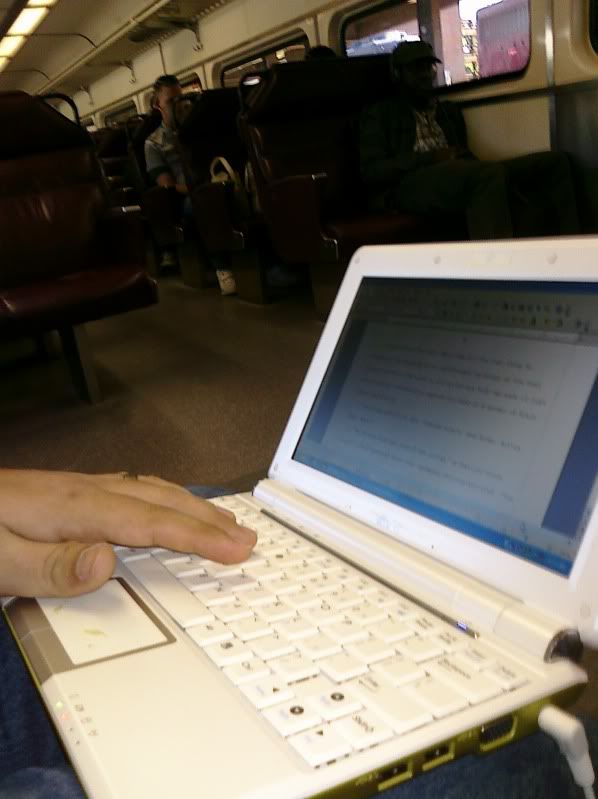But I'm unhealthy and I need to lose a lot of weight (a lot, so let's just leave it at that). I started participating in Boston's bike share program, riding a bike to work rather than riding the subway. While this did not have an immediate impact on my creativity, it seems to have had an effect over time. I've been feeling really burnt out the couple weeks. Now that the weather is cooling, I've started to take the subway again and started reading a new book (THE CITY'S SON by Tom Pollock) and I feel a spark I haven't felt for awhile. I've taken the past few days off and will resume writing tomorrow. I'm hoping a little break is what was necessary. I know there's been a lot of stress. Three full requests is no small thing and work has been incredibly difficult this year. Or rather, my editors have been incredibly difficult this year. My job is the same as it's always been, but content has been delivering later and later and I've had to turn it around faster and faster. I actually developed insomnia for a couple weeks. Let me tell you, that sucked.
I actually have (another) really exciting opportunity regarding one of the fulls I already delivered. Over-the-moon exciting, so of course I can't tell you about it. Cross your fingers for me, if you would be so kind.
So what does that leave? Well, I'm still fat. I need to lose weight and "working out" is something I detest. I always have. I always will. I do much better competing than I do simply standing on an elliptical and trudging for 45 minutes. I need a goal, a challenge, something I want to accomplish. I played kickball, but that was only once a week and our post-game dinners usually packed on more calories than we burned during the game. Serendipitously, they're starting a men's roller derby league in New Hampshire. I haven't skated in 25 years, but I think this might be just the kind of thing I would like to participate in. The biggest hurdle? My feet. I have insanely wide feet (8 EE if you're familiar with skate boots). No one has something that wide that I can borrow, which means I'll have to buy custom skates. It's a big deal if I choose to participate and I or it craps out. A skate made of quality components will hit me just under $600. How horrible would it be to spend that and then not be able to participate?
I can't keep doing what I'm doing. It may be cute to say "Oh bother" in a Whinnie the Pooh voice, but looking like him is not that cute.


